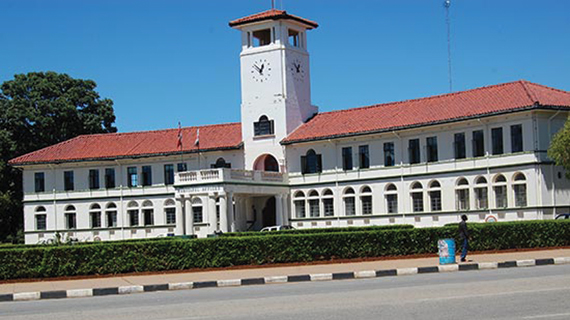
INCESSANT power cuts at Gweru City Council’s waterworks have significantly contributed to the severe water shortages being experienced by residents in the Midlands city.
By Stephen Chadenga
Since Thursday the city has been hit by water shortages as a result of a faulty power cable at Gwenoro Dam forcing many residents to queue at the few functional boreholes while others fetched water from unprotected wells as the water crisis became dire.
This comes amid reports that the city’s main supply dams Gwenoro and Amapongokwe were around 98% full.
“We are failing to pump water because of a fault power cable at Gwenoro Dam,” assistant town lerk, Tapiwa Marerwa said in an interview over the weekend.
“The problem is being attended by the power utility ZESA and we hope by the end of this week (last week) the problem would be solved so that we can restore normal supplies.”
Efforts to get comment from ZESA (Southern Region) general manager, King Dube were fruitless.
Council’s acting director of engineering services Praymore Mhlanga last week also blamed ageing pumps for the water shortages.
- Chamisa under fire over US$120K donation
- Mavhunga puts DeMbare into Chibuku quarterfinals
- Pension funds bet on Cabora Bassa oilfields
- Councils defy govt fire tender directive
Keep Reading
Last year, residents shot down a proposal by the city fathers to introduce a once-off payment of $20 per household which was aimed at raising funds for procurement of new water pumps.
Since Thursday the city has been hit by water shortages as a result of a faulty power cable at Gwenoro Dam forcing many residents to queue at the few functional boreholes.
Meanwhile, the council conceded that it has failed to check on the quality of its water since the beginning of the year, thereby exposing residents to waterborne diseases.
“We have plans to increase food and water sampling from 10 times to at least 12 times per year by December 2015. No water or food samples have been set out for analysis so far and we are far below target,” acting health services director Christopher Ruwodo said in a recent report.
Cholera can be transmitted through water and fresh foods especially fruits, fish and meat and pre-cooked food sold in the open.
Zimbabwe experienced its worst cholera outbreak between August 2008 and July 2009 when 5 000 deaths and almost 100 000 cases were reported throughout the country.










